Awarded to an individual for innovative research contributions in the field of audiology/hearing and balance sciences, whose work has had groundbreaking impacts on the field and/or practice of audiology. Recipients of this award must members of the Academy. Only one Jerger Career Award may be awarded each year.
How to Nominate
The Academy Honors and Awards Committee encourages all Academy members to identify those colleagues they believe have made significant contributions to the audiology profession. If you know someone who should be recognized for his or her efforts, please take the time to submit a nomination packet to the committee for review. Read more about the nomination requirements and committee policies here.
Award Winners
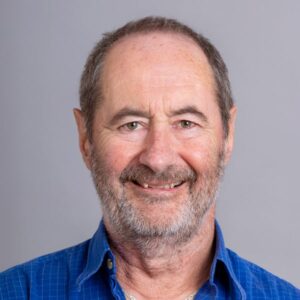
Dr. David Moore is the 2025 recipient of the Jerger Career Award for Research in Audiology. His research has profoundly shaped the field of audiology and significantly advanced our understanding of auditory processing and hearing disorders especially in children. His pioneering studies on the neurobiological underpinnings of auditory processing disorder (APD) have provided critical insights into the diagnosis and treatment of this condition. HIs research has paved the way for more effective therapeutic interventions and enhanced quality of life for those affected by APD. Dr. Moore’s research findings have been translated into practical diagnostic tools and treatment protocols, directly benefiting practitioners and patients alike.
Dr. Moore has received numerous honors for his publications and his research is frequently cited. Dr. Moore serves on many editorial boards for scholarly journals and has supervised numerous graduate student projects allowing for further research building upon his foundations.
Dr. Moore’s current focuses are hearing disorders in children, new generation devices for improving hearing and listening, methods for translating basic research in hearing to clinical application, genetics of hearing and listening difficulties, and internet-based and large-scale studies of hearing.
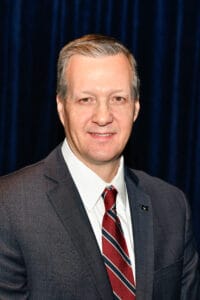
Dr. Devin McCaslin received a master’s degree in audiology from Wayne State University and a PhD in hearing science from The Ohio State University. He is the current clinic and academic program director of audiology at Michigan Medicine in Ann Arbor, Michigan, and professor in the Department of Otolaryngology- Head and Neck Surgery.
Dr. McCaslin is an esteemed member of the audiology community due to his groundbreaking impact on the field and practice of audiology, particularly the vestibular sciences. His major research interests relate to vestibular assessments, electrophysiology, health-care economics, and the application of artificial intelligence to manage and treat patients with dizziness.
He has authored textbooks, co-authored textbook chapters, authored over 100 publications, presented the results of his research at over 100 meetings, and is frequently invited to be a featured speaker at international and national meetings. In addition, Dr. McCaslin currently has federal and foundation funding, led over 50 student projects, participated in many study sections and review panels, and served as deputy editor-in-chief of the Journal of the American Academy of Audiology.
Dr. McCaslin’s extensive research and contributions have positively impacted the profession of audiology, as well as patient care, and it will only continue to do so. The Academy is pleased to honor Dr. Devin McCaslin as the 2024 recipient of the Jerger Career Award for Research in Audiology.
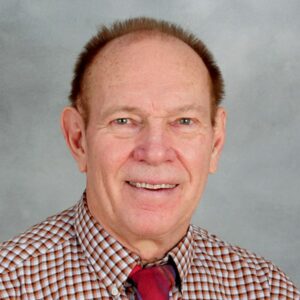
Richard Tyler, PhD, is the 2023 recipient of the Jerger Career Award for Research in Audiology. He is an audiologist who has made contributions to translational research over his 40-plus-year career. After earning his PhD at the University of Iowa, he became the scientist-in-charge of the Clinical Outstation at the Institute of Hearing Research in Nottingham, United Kingdom. Subsequently, Dr. Tyler has had a prolific academic career as a faculty member and director of audiology at the University of Iowa, where he has mentored numerous graduate students and clinical fellows.
Dr. Tyler is known for his seminal research contributions in the areas of cochlear implants, tinnitus, and hyperacusis, having published 290 peer-review manuscripts, including the development of the Spatial Hearing Questionnaire and the Tinnitus Primary Functions Questionnaire.
He has been successful in securing research funding from private and federal agencies, and is a sought-after speaker at national and international conferences. In addition, Dr. Tyler founded the highly successful annual International Conference on the Management of Tinnitus and Hyperacusis Patients, educating clinicians on the most current evaluation and management strategies for the treatment of tinnitus and hyperacusis.
Dr. Tyler’s nominators describe him as having the “insightful, inquisitive, and creative mind of a disruptor,” who has made tremendous scientific and clinical contributions to the profession of audiology and hearing science.
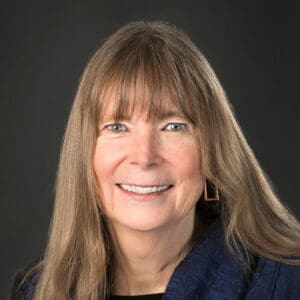
Dr. Meinke began her career as a clinical audiologist working in a multi-specialty medical clinic. She then transitioned to consulting as an occupational audiologist, and ultimately earned a PhD from the University of Colorado in 2005. Currently, Dr. Meinke is a Winchester Distinguished Professor in the Audiology and Speech-Language Sciences program at the University of Northern Colorado.
Her research has been innovative and influential, and she is known for her seminal contributions to the field of hearing loss prevention. Any description of Dr. Meinke’s accomplishments is not complete without mentioning her involvement in the Dangerous Decibels® program. Dangerous Decibels has been incredibly successful and was honored as the recipient of the Safe-In-Sound Excellence in Hearing Loss Prevention Award™.
Dr. Meinke has been extremely productive in obtaining research funding, has published peer-reviewed articles, book chapters, government reports, and a World Health Organization monograph. She is regarded as a skilled presenter, having conducted numerous workshops and scientific presentations worldwide. In addition, she has been an active research mentor for 70 national and international students, several of whom have been honored with awards—a testament to the excellence which she instills in her students.
Dr. Meinke’s nominators describe her as a “scholar, a mentor, and a friend to many,” whose passion for protecting hearing clearly demonstrates the indelible impact she has had on the profession of audiology.
The Academy is pleased to bestow its 2022 Jerger Career Award for Research in Audiology to Dr. Deanna Meinke in recognition of her significant contributions to audiology.
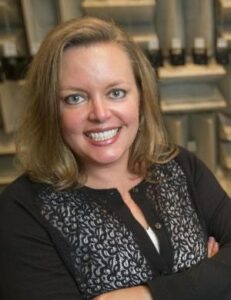
René Gifford is an active clinician/scientist who maintains a clinical practice in the cochlear implant clinic at Vanderbilt, seeing adults and children who use cochlear implants and hearing aids.
Her research interests include combined electric and acoustic stimulation (EAS) with cochlear implantation, speech and auditory perception for adults and children with hearing loss, and spatial hearing abilities of individuals combining hearing aids and cochlear implants.
Dr. Gifford’s research has been funded by the National Institutes of Health for nearly 20 years and she has published over 120 peer-reviewed articles, multiple book chapters, and a book, now in its second edition, Cochlear Implant Patient Assessment: Evaluation of Candidacy, Performance, and Outcomes.
She was a featured scientist on National Public Radio, Science Friday broadcast, Breakthrough: Portraits of Women in Science—Hearing a Whole New World.
Dr. Gifford has especially enjoyed teaching and mentoring the next generation of clinicians and clinician-scientists. She couldn’t have wished for a more fulfilling career and looks forward to many more years of scientific discovery, teaching, mentorship, and evidence-based practice ensuring that every individual can achieve their maximum hearing potential.
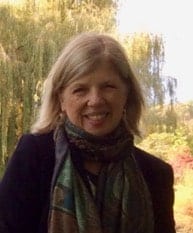
Linda J. Hood, PhD, is the quintessential audiologist and hearing scientist, having made significant contributions to both clinical and basic science research over her 40-plus year career. After earning her PhD at the University of Maryland, College Park, she completed a three-year NIH post-doctoral fellowship at the Kresge Hearing Research Laboratory studying auditory anatomy and physiology.
Over the course of her academic career, she has held faculty positions at Louisiana State University Departments of Otolaryngology, Communication Disorders, Neuroscience, and Genetics, before taking her current position as a faculty member in the Department of Hearing and Speech Sciences at Vanderbilt University.
Dr. Hood’s has published more than 50 peer-reviewed articles in top audiology and medical journals. She is an outstanding scholar and clinician scientist who has provided foundational insights into the diagnosis of auditory disorders and their genetic bases. Her research in the areas of hereditary hearing loss, novel assays of afferent and efferent neural function, and the clinical diagnosis and management of auditory neuropathy spectrum disorder have had a lasting and meaningful impact on the profession of audiology.
She has been consistently funded by NIH and is currently modeling auditory responses and behaviors in pre-term infants. In addition, Dr. Hood has been an active research mentor to many future investigators, including her leadership on the NIH-NIDCD Developing Research Careers in the Hearing Sciences training grant for AuD students.
As a founding member of the American Academy of Audiology, Dr. Hood is also a dedicated leader in the profession of audiology. She has held multiple leadership roles including past-president for the American Academy of Audiology, the American Auditory Society, and the International Society of Audiology.
Dr. Hood’s nominators describe her as a “giving mentor” whose “strong expertise,” “strength and perseverance,” and “passion and enjoyment of our profession” clearly demonstrate the indelible impact she has had on her colleagues and the profession of audiology.
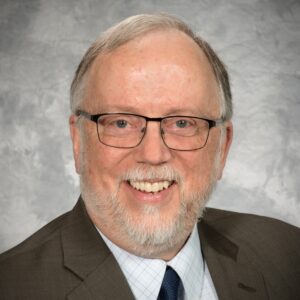
Patrick M. Feeney initiated his academic career in 1971 at Kent State University. He went on to study at the master’s level at Washington State University. Ultimately, after serving a number of years as a clinical audiologist, he earned a PhD at the University of Washington in 1993. His illustrious career spans more than 30 years and is highlighted by a record of excellence and leadership in teaching, scholarship, and professional service and clinical service provision. He was a faculty member at Ohio University, the Ohio State University, and the University of Washington before taking his current position in 2011 as director of the VA Rehabilitation Research and Development, National Center for Rehabilitative Auditory Research (NCRAR) at the VA Portland Health Care System in Portland, Oregon. He is also a professor in the Departments of Otolaryngology, Head and Neck Surgery and Neurology at Oregon Health and Science University. Dr. Feeney is a highly respected scholar who has received numerous and prestigious grants/awards from federal, state, and local agencies. His research has focused on peripheral and central auditory function in children, adults, and veterans. He is also an active volunteer in professional organizations having served as the 2008-2009 president of the American Academy of Audiology.
In total, Dr. Feeney’s research has resulted in more than 50 publications in peer-reviewed journals, 11 chapters in seminal texts for the profession of audiology, and more than 50 published abstracts. More important than these remarkable achievements are Dr. Feeney’s dedication to the profession of audiology and to the patients served by our profession. Dr. Feeney mentored and assisted other hearing professionals in developing their own unique lines of academic research and has dedicated a large portion of his significant talent to educating hearing health-care professionals to improve quality of care. His nominator, Tina Penman, AuD, said, “I cannot think of anyone more [deserving] than Dr. Feeney to receive the Jerger Career Award for Research in Audiology.”
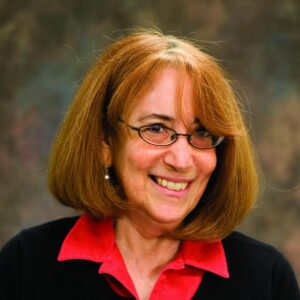
Dr. Eisenberg has had a productive and influential history of research in the audiology pediatric community specializing in the study of the efficacy of auditory sensory devices, such as cochlear implants (CIs), auditory brainstem implants (ABIs), and hearing aids in children with significant hearing loss. Notably, her research on CIs and ABIs has been pioneering studies in these fields. It is also noteworthy that Dr. Eisenberg’s multidisciplinary research program has been federally funded for over 25 years. In fact, her most recent CI and ABI investigations epitomize the ultimate goal of scientific research on practical problems in that they focus on translating laboratory research into clinical practice through the means of clinical trials.
Moreover, Dr. Eisenberg is the principal investigator on the largest, 18-year longitudinal, six-center prospective study of the outcomes in pediatric cochlear implant recipients entitled, “The Childhood Development after Cochlear Implantation (CDaCI)” project. What makes her especially deserving of this career award is her ability to understand the multi-dimensional impacts of childhood deafness on the whole child, including not only their auditory and communicative skills, but also their social, emotional, cognitive, and behavioral development. Out of her productive career focusing on the rehabilitation of childhood deafness has come more than 100 publications in research journals, book chapters, and presentation proceedings from distinguished scientific and clinical meetings.
As the supporters of Dr. Eisenberg summarize in their letter of nomination, in the field of pediatric audiology, she has advanced our clinical knowledge/assessment skills, enhanced the adoption of best practices, and improved access to sound for many children with profound deafness. The Honors Committee wholeheartedly agrees that Dr. Laurie S. Eisenberg be recognized as the recipient of the 2018 Jerger Career Award for Research in Audiology based on her significant and ground-breaking contributions to furthering scientific and clinical research in the field of pediatric audiology and, particularly, for the study of cochlear implants in which her studies have ranged from the original single-channel devices to the more advanced multichannel systems of today.
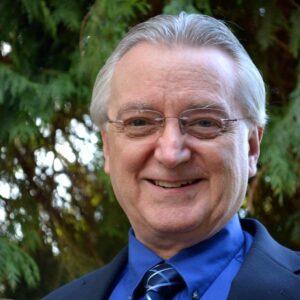
Dr. Jim Henry received his PhD from the Oregon Health and Sciences University in 1994. He currently holds the post of research career scientist at the Veterans Affairs Rehabilitation Research and Development Service National Center for Rehabilitative Auditory Research, Veterans Affairs Portland Health Care System in Portland, Oregon. He also serves as a research professor in the Department of Otolaryngology, and adjunct professor in the Department of Speech and Hearing Sciences at Portland State University in Portland, Oregon.
Dr. Henry is widely acknowledged as an authority in the area of tinnitus. He has gained national and international distinction for his work in developing valid and reliable methods for evaluating the psychoacoustic characteristics of tinnitus. These techniques have helped to standardize the process by which clinicians evaluate and treat patients with tinnitus. He also co-directed a joint multicenter project designed to develop an international tinnitus outcome measure called the Tinnitus Functional Index (TFI). The TFI has garnered national and international attention and has been translated into 14 languages. Dr. Henry has also developed and validated other important instruments designed to improve the diagnosis and treatment of tinnitus and hearing loss, including the Tinnitus and Hearing Survey.
Dr. Henry was awarded funding to develop, evaluate, and implement the most effective, efficient, and beneficial approach to clinical management of tinnitus. This resulted in the development of Progressive Tinnitus Management, which is currently the standard of care for the Veterans Affairs and being evaluated for use by the Department of Defense. From this work, Dr. Henry developed a telephone-administered version and has successfully demonstrated the feasibility and efficacy of providing tinnitus counseling by telephone to veterans throughout the United States, with and without a history of traumatic brain injury.
For his efforts in the development of the psychoacoustical testing system, Dr. Henry received a Technology Innovation Award from Oregon Health and Science University in 2009. He received the Editors Award from Ear and Hearing for the paper, “”The Tinnitus Functional Index: a new clinical measure for chronic, and intrusive tinnitus.
Dr. Henry has been an extremely successful career researcher. From 1995 to date, he received extramural financial support for 31 projects for a combined total of $11.7 million. This funded research focused on some areas including electrophysiological assessment of high-frequency auditory sensitivity using high-frequency tone bursts, electroacoustic measures of tinnitus, clinical trials of different forms of tinnitus treatment, development, and the development of psychometrically robust tinnitus outcome measures.
Dr. Henry has also been highly successful in publishing his research, with 79 peer-reviewed publications (an additional 62 in non-peer-reviewed publications) in a range of both basic research and clinical research journals. Also, he has published seven books and four book chapters. Further, he has provided approximately 300 scientific presentations. It is clear from this summary that Dr. Jim Henry has contributed manifold to our understanding of tinnitus and, accordingly, is deserving of the Jerger Career Award for Research in Audiology.
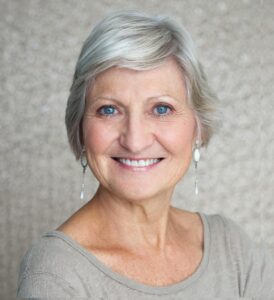
Dr. Bentler is widely acknowledged as a foremost authority in the field of hearing aid amplification. She holds a bachelors, masters, and doctoral degree from the University of Iowa. She is currently a professor and chair of the Department of Communications Sciences and Disorders at the University of Iowa. During her career, she has worked diligently to advance the profession of audiology through service on committees and task forces, and mentoring students in audiology. Dr. Bentler attracts outstanding individuals from around the globe as students and research collaborators are eager to work with her to develop hearing aid research to the next level.
Dr. Bentler’s research findings have had international impact on the fitting of hearing aids for children and adults. Her scholarly accomplishments and quantity of work is most impressive. In just the past year, she has had eight peer-reviewed articles published, five more articles in process, one textbook published, one textbook under process, three international presentations, four national meeting presentations along with several state and local talks. She is an editorial consultant for four major audiology journals and completed numerous activities as the director/principal researcher on three federally funded research projects. She also serves on numerous federal and organizational standards committees and has been intimately involved developing best practice guidelines related to the measurement, function, and fitting of hearing aids.
Dr. Bentler’s early work set standards for completeness and thoroughness in longitudinal studies of hearing aid outcomes over a period of 12 months following hearing aid delivery. Her publications regarding acoustic transfer functions provided correction factors that have been adopted into international standards and are currently the basis of most hearing aid fitting software programs. For more than a decade she published a continuing series of studies on the efficacy and effectiveness of various hearing aid special features which includes directional technology, digital noise reduction, and frequency lowering strategies. Her cumulative studies in loudness measures and their clinical applications have become a standard of practice in hearing aid programming and verification procedures. Her current research continues to include such challenging topics around rehabilitative outcomes for children with hearing impairment, and the relationship between brain responses and hearing aid success in adults.
Dr. Bentler is known for her scholarly insight, creativity, and seminal contributions in the field of amplification. Her research as impacted and influenced the design, evaluation, and utilization of personal amplification. An extraordinary career in research and untiring service to our profession, clearly demonstrate the very spirit for which the Academy’s Jerger Award in Research in Audiology was established.
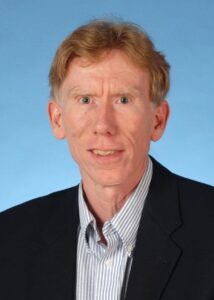
Joseph W. Hall III, PhD, has had a distinguished career in research in audiology and hearing science with contributions spanning nearly four decades. His research has had great impact on other investigators, students, and practicing clinicians. His record of publications in the highest quality scientific journals and his successful competitive grant writing places him in the top tier of investigators, not just in audiology and hearing science but in all areas of scientific research. Dr. Hall completed his undergraduate work in psychology at the College of William and Mary in 1972 and his PhD in experimental psychology at the University of North Carolina in 1976. To strengthen his background in applied areas of hearing research, he completed a master’s degree in audiology at the University of North Carolina in 1980, an unusual sequence that demonstrates his commitment to clinical research. Dr. Hall, who is Board Certified in Audiology®, is currently distinguished professor and chief of audiology research at the University of North Carolina Medical School.
The hallmark strength of Dr. Hall’s research contributions is the application of basic science techniques to study populations not often studied with these methods. These include normal children, children with otitis media, children with attention deficit/hyperactivity disorders, subjects with sensorineural hearing loss, subjects with surgically altered middle ears, subjects with fluency disorders, and elderly subjects. He has well over 100 scientific publications, 79 of which he is first author on. His publications have been cited in the scientific literature nearly 1,800 times. Perhaps the most amazing aspect of his research record is his 69 years of federal funding on research grants for which he was principal or coprincipal investigator.
All of Dr. Hall’s colleagues know him to be the most collegial, generous, thoughtful colleague. He is a mentor with teaching contributions to medical students, otolaryngology residents, PhD students in audiology and psychology, postdoctoral fellows, and master’s/AuD students in audiology.
For more than 20 years, Dr. Hall has made significant professional contributions as committee member and reviewer for the National Institutes of Health, the National Science Foundation, the National Research Council Committee on Hearing, Bioacoustics, and Biomechanics, and editorial boards. He has received awards from the American Academy of Audiology, the Acoustical Society of America, and the National Institute on Deafness and Other Communication Disorders.
The breadth of his contributions is summarized well in a nomination letter for this award cosigned by five of his colleagues at the University of North Carolina: “We cannot think of a more deserving recipient than Dr. Joseph W. Hall III. He has distinguished himself as one of the world’s preeminent hearing scientists with a long-standing history of research that has been fundamental to the translation of basic science to clinical practice. A gifted scholar and devoted mentor, Dr. Hall’s career has exemplified the highest standards of professionalism and ethical conduct.”
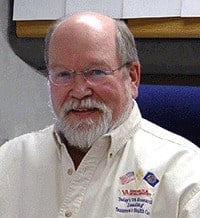
Although the research record of Dr. Wilson spans six decades, that remarkable achievement does not capture the most important aspects of his contributions. Of his 126 journal articles, he is sole author on only five. His 68 first-authored research articles are an indication of his initiative and leadership. The number of coauthors, over 100, is evidence of the importance he places on collaboration with his peers, junior colleagues, and students. He believes strongly that research is a process that can be, but often is not, taught to student investigators. His own mentors, notably Raymond Carhart and Donald Dirks, instilled in Richard Wilson a standard for quality and intellectual honesty that he has successfully passed on to dozens of young colleagues.
When Dr. Wilson became chief of the audiology section at the VA Medical Center in Long Beach, California, in 1972, there was no audiology research program. He attracted a staff of research audiologists that made the program one of the most productive audiology research centers in the world. He made this possible by his remarkable grant-writing skills, which he taught to his young research staff, who themselves became successful in attracting research support. When he decided to return to his roots in northeast Tennessee and became chief of the audiology and speech pathology service at the James H. Quillen VA Medical Center, the pattern repeated. He attracted young investigators, mentored them in the grant-writing process, and created one of the most productive audiology research centers in the world. At both locations he developed strong partnerships with affiliated universities, first at the University of California–Irvine and then at East Tennessee State University. His collaboration with East Tennessee State University played a crucial role in developing one of the earliest doctor of audiology programs. He facilitated the active involvement of his staff at the VA to create a strong collaborative audiology training program.
The list of young investigators and mentees who have benefitted from their collaboration with Dr. Wilson is too long to include here but reads like a Who’s Who of audiology research. That is what he wanted to accomplish in his professional work—to raise the level of the profession by setting an example of high standards. His expectations of students and colleagues are always high. Less than complete dedication to high quality in research and clinical practice has never been acceptable. These expectations have helped young colleagues achieve at a level that even they did not expect.
Dr. Wilson’s contributions to his profession go beyond his research publications. His development of speech recognition materials on CD are used widely. Although these materials have significant commercial value, he never derived any personal income from them. His goal was to make them widely available to improve clinical practice in audiology. He also believed strongly in the broad accessibility of our research literature. He obtained permission to compile many of the early research journals onto CD and made them widely available. These are contributions that brought him no benefits other than the satisfaction of making contributions to his profession.
The Jerger Career Award for Research in Audiology could not find a more deserving recipient. Appropriately, when the award is presented, Dr. Wilson will have coauthored an article with Dr. Jerger. He views it as a great honor to be a coauthor with the namesake of the award, and it is a fitting recognition of the level of his contributions to our profession.
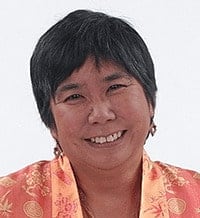
Dr. Christine Yoshinaga-Itano is a professor of Audiology in the Department of Speech, Language and Hearing Sciences, Institute of Cognitive Science, Center for Neurosciences, University of Colorado at Boulder; Department of Otolaryngology and Audiology, University of Colorado at Denver; and the Marion Downs Hearing Center. She isa world leader in research and, for 30 years, has been studying language, speech, and social-emotional development of deaf and hard-of-hearing infants and children. Her ground-breaking research has produced unequivocal evidence that early detection and intervention of hearing loss is successful in having a significant impact on language learning of children with hearing loss.
Dr. Yoshinaga-Itano received her bachelors degree in psychology from the University of Southern California, followed by a masters degree in education of the hearing impaired, and her PhD in audiology and hearing impairment from Northwestern University. She is a teacher of the deaf and hard of hearing and an audiologist. In 1996, she and co-investigator Kathy Arehart received a five-year MCH grant for Universal Newborn Hearing Screening that established the Marion Downs National Center, now the Marion Downs Hearing Center. The present co-director, Sandra Abbot Gabbard, states that Dr. Yoshinaga-Itanos research has had a broad impact: Health and education policies have changed globally; professional standards in audiology, medicine, early childhood and deaf education have been revised; and families worldwide with children who are deaf and hard of hearing have new hope for their childrens futures.
Since 1996, Dr. Yoshinaga-Itano has helped to support many state departments of education and public health agencies, schools for the deaf and blind, and early intervention programs throughout the United States and its territories. As well as her work in the United States, she has served as a consultant supporting many countries advancing their own early hearing detection and intervention programs, including the United Kingdom, Canada, Australia, New Zealand, Japan, China, Korea, Belgium, Poland, Spain, Austria, Denmark, Sweden, Norway, Netherlands, Mexico, Chile, Argentina, Brazil, Thailand, Philippines, and South Africa.
The esteemed Dr. Marion Downs has said, In my opinion Dr. Yoshinaga-Itano is responsible for the fact that nearly every child born in the United States is now being screened for hearing loss in the newborn nurseries of this country. Ive lost count of the number of countries that have fallen suit. Her research on the advantages of early identification, accomplished with her usual meticulous control, and pediatric journal articles, finally convinced physicians to throw their support for newborn screening in the nations hospitals. Anyone who has sat in her classes has been inspired in their audiological career and has gone out with new enthusiasm to spread the word about what can be done regarding hearing losses, from birth to old age.
Dr. Jerry Northern has said, Dr Yoshinaga-Itano is a woman and a professional of the utmost integrity and who is highly regarded and widely recognized by all who know her and her work. For her overwhelming dedication to the profession and her innumerable contributions, she has earned the respect, admiration, and appreciation of audiologists and colleagues around the world. Her contributions to pediatric audiology are truly legendary.
Leanne Seaver, former executive director of Hands & Voices has said, Her wisdom, her expertise, and her compassion make her such a unique voice and presence for families and to the field at large. Congratulations to Dr. Yoshinaga-Itano for her many achievements and receipt of this prestigious award!
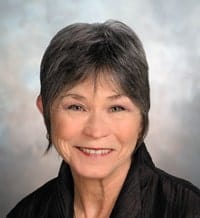
Brenda M. Ryals, PhD, is the recipient of the 2012 Jerger Career Award for Research in Audiology. Her career exemplifies the intent of this prestigious award from the American Academy of Audiology. Dr. Ryals is a professor of communication sciences and disorders and director of the auditory research laboratory at James Madison University, as well as an adjunct professor of psychology and of speech and hearing at the University of Maryland. She completed her BS in speech pathology and audiology at East Carolina University, her MA in audiology at the University of Tennessee, and her PhD in audiology and hearing science from the University of Virginia.
Throughout her career, Dr Ryals’ research has informed both the science and practice of audiology, and has resulted in fundamental advancements in auditory neuroscience. Her research has focused on issues of auditory plasticity and the neural and functional consequences of hair cell regeneration during development and after injury. Understanding the impact of hair cell regeneration on central auditory connections and on hearing in birds has important implications for human hearing, in that better predictions can be made concerning the structural and functional consequences of deafness and auditory restoration in humans. During this noteworthy career, Dr. Ryals has managed to mentor a multitude of young scientists, demonstrating (as one supporter notes) “…the curiosity, grace under fire, and ethics to which we all might aspire.”
In addition to her own personal and prolific research career. Dr. Ryals’ service to the scientific and professional communities has also been exemplary. She has served on numerous scientific review panels for the NIH, has been a member of the Scientific Review Board of the Deafness Research Foundation, and served on the NIH/NIDCD National Research Advisory Council. She is a past president of the American Auditory Society, a former member of the executive board of the American Academy of Audiology and is currently the editor-in-chief of the journal of the American Auditory Society, Ear and Hearing, to name only a few. Dr. Ryals has presented her work at more than 100 meetings and, despite her unenviable workload, she has managed to practice her skills by her humanitarian efforts in Kenya and with the Special Olympics International.
In all, Dr. Ryals is a highly productive and internationally respected leader in the fields of audiology and auditory neuroscience. She has a strong clinical background and maintains strong clinical ties, which serve to ground her work in activities that inform clinicians as well as basic scientists, and that have the potential to benefit patients. Her innovative research, her dedicated support of the science of audiology, and her generous and expert mentoring of the research careers of her students and colleagues all epitomize the essence of the Jerger Career Award for Research in Audiology.
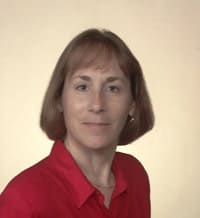
Judy R. Dubno, PhD, is unquestionably one of the most outstanding researchers in audiology in the United States today. Throughout her distinguished career in audiology and auditory research, Dr. Dubno has built an extensive research program that has addressed a wide range of key issues pertaining to auditory perception, sensorineural hearing loss, presbycusis, and speech recognition. After earning her PhD in Speech and Hearing Science from the City University of New York Graduate Center, Dr. Dubno completed a post-doctoral fellowship at the UCLA School of Medicine, where she remained as a faculty member for several years. In 1991 she relocatied to the Medical University of South Carolina in Charleston, South Carolina, where she currently is professor and director of research in the Department of Otolaryngology-Head and Neck Surgery.
Dr. Dubno’s multi-faceted research program on human auditory system function has made long-lasting contributions regarding the encoding of auditory information in simple sounds and speech, as well as how these abilities change in adverse listening conditions, with age, and with hearing loss. In each of these areas, Dr. Dubno has had a significant impact on our fundamental knowledge of auditory perceptual abilities, and on clinical audiologic methods of assessment and rehabilitation. Throughout her career, Dr. Dubno has tackled complex scientific issues with an interdisciplinary approach, including speech perception, psychoacoustics, electrophysiology, and cognitive neuroscience. Her thorough and meticulous approaches have moved the scientific understanding of hearing loss and speech perception forward in a manner that will serve as the basis for many years of future research. Her classic articles on adaptive procedures in measuring speech recognition, published with Dr. Don Dirks, have been widely adopted as standard research and clinical methods.
Dr. Dubno is an extremely productive researcher with an extensive scientific publication record of articles in premier peer-reviewed journals and highly regarded chapters and reviews. Her seminal papers have had a far-reaching impact on the field of audiology, and have established a new standard for precision and clarity in auditory research. The citation rate for her publications is among the highest for any researcher in our discipline.
Dr. Dubno’s research program is very highly regarded by her peers and has had a substantial influence on research conducted by other investigators. Thirty years of continuous support for her research from the National Institutes of Health (NIH) is testament to the quality of her work and the high esteem with which her colleagues view her contributions to science. In addition to her current role as principal investigator on two large externally funded grants, it is notable that she has also served a co-investigator on numerous additional projects.
Finally, Dr. Dubno has generously given her time to the professional and research communities in audiology, through her extensive service on editorial boards, national scientific boards, and NIH review panels. Along with committee service to national scientific societies, she has served as president of the Association for Research in Otolaryngology, a member of the NIH National Institute on Deafness and Other Communication Disorders (NIDCD) Advisory Council, and currently is vice president of the Acoustical Society of America. Despite these demands on her time, Dr. Dubno has always proven to be the consummate team player and a pleasure with whom to work.
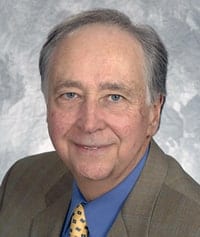
Dr. Stephen Fausti’s remarkable career has contributed significantly to research, teaching, and clinical practice of audiology. He received his BA from Washington State University, his MA from the University of California at San Francisco, and his PhD from the University of Washington. From the onset of his career, Dr. Fausti’s research aimed at improving quality of life for the nation’s veterans who are afflicted with hearing loss, tinnitus, and/or vestibular dysfunction. Much of his career has focused on developing new strategies, protocols, and equipment to allow early identification of ototoxicity. His research and leadership in the development of practical clinical procedures for the behavioral and objective monitoring of high-frequency hearing loss has laid the groundwork for establishing standards of clinical practice in this area, and has led to the use of high frequency audiometry as a valuable clinical tool.
In his work with veterans, Dr. Fausti’s research also led to the development of custom instrumentation and innovative techniques for obtaining electrophysiological measures of high frequency auditory function. These developments are especially applicable to patients who are unable to respond reliably to behavioral tests, due to age, injury, illness, or some other limitation.
Dr. Fausti has also made significant contributions to the evaluation and treatment of tinnitus—pioneering an automated system for tinnitus assessment. He has investigated the auditory effects of a variety of disease processes, including otosclerosis, diabetes, and multiple sclerosis, and has made important contributions in the areas of tympanometry, automated audiological measurement, and ABR and DPOAE sensitivity to high frequency stimuli.
Dr. Fausti has given over 140 national and international presentations, and authored or co-authored more than 100 articles in peer-reviewed journals in audiology, infectious disease, otolaryngology, psychology, industrial hygiene, and cancer. His research has far-reaching implications to multiple and diverse medical fields and has earned him the respect and recognition as an international authority on early ototoxic-induced hearing threshold changes and tinnitus assessment.
In 2004, Dr. Fausti was the recipient of the Paul B. Magnuson Award for Outstanding Achievement in Rehabilitative Research and Development from the Veterans Administration in recognition of his “entrepreneurship, humanitarianism, and dedication to veterans.”
Dr. Fausti would likely say that his proudest achievement was founding of the National Center for Rehabilitative Auditory Research (NCRAR) in the Portland, Oregon, VA Medical Center, in 1997, where he currently serves as director. Under his leadership, the NCRAR has grown substantially over the years, and is now the country’s leading research center in rehabilitative audiology. Dr. Fausti has drawn together a remarkable group of investigators and researchers who work in this center of excellence to help our wounded warriors cope effectively with auditory impairments.
In addition to his work at the NCRAR, Dr. Fausti is a Professor in the Departments of Otolaryngology and Neurology at Oregon Health & Science University and has taught at various universities throughout the state of Oregon. He has played an active role in developing and participating in programs to mentor student audiologists in the VA health-care system. Dr. Fausti serves on many working groups, planning committees, and editorial and review boards.
Dr. Fausti’s many contributions to the field of audiology have impacted research, teaching, and clinical practice, as well as administration and management. He is a versatile and prolific professional who represents the highest standards of research and accomplishment. He joins the elite of our profession as this year’s recipient of the Jerger Award for Research in Audiology.

Dr. Sandy Gordon-Salant personifies the scholarly accomplishments of this award’s namesake. Following receipt of her PhD in audiology from Northwestern University, Dr. Gordon-Salant headed to her first faculty position at the University of Maryland, where she has remained ever since. While there, she rose through the ranks and soon became the mainstay of that university’s audiology program, both as a researcher and a teacher. Despite a varied and demanding teaching load, as well as numerous administrative or service responsibilities, she was able to develop and sustain an outstanding research career devoted to attaining a better understanding of the auditory perceptual problems experienced by older adults. Dr. Gordon-Salant, working in collaboration with her long-time colleague and friend, Pete Fitzgibbons, was one of the first to clearly establish that older adults have great difficulty processing rapid sounds, including time-compressed or rapidly articulated speech. More importantly, she was able to demonstrate that such difficulties were age related and not just a simple consequence of peripheral hearing loss. The excellence of her programmatic research in these areas was recognized recently by the National Institute on Aging when her grant application received a prestigious MERIT award, adding an additional five years of NIH support to her funded five-year application. Perhaps the only thing more remarkable than Dr. Gordon-Salant’s great scholarly success is the unassuming manner in which she wears it.
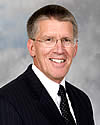
The career of Larry Humes has shown a consistent dedication to research that is of the highest caliber and is reflective of the research commitment demonstrated by Dr. Jerger. Beginning with an undergraduate degree from Purdue University and a Master’s degree from Central Michigan, Dr. Humes completed his PhD at Northwestern University in 1979. After spending 8 years at Vanderbilt University, Dr. Humes went to Indiana University and has remained there until today. To say that Dr. Humes has been prolific in publishing important articles in audiology would be an understatement. He has published over 140 journal articles, chapters, book, and reviews and given over 200 presentations throughout the world. The high quality of his research has been recognized and supported by external funding agencies, with over 24 research grants. He was the recipient of an NIH Research Career Development Award from 1984-1989 and has been the Principal Investigator on an individual investigator award from the National Institute on Aging of the National Institute of Health since 1990.
The areas of research that have occupied Dr. Humes can be described as broad and clinically relevant. Those most important include susceptibility to noise-induced hearing loss, psychoacoustic abilities of hearing-impaired listeners, innovations in hearing aid fitting, hearing disabilities of the elderly, and modeling hearing aid fitting outcomes. An example of his thorough approach is evident in his work with the elderly, where he has carefully partialed out the contributions of sensory impairment, processing limitations of the central auditory nervous system, and cognitive decline to derive a comprehensive explanation of the older listener’s speech understanding problems in everyday listening situations.
In addition to his own research efforts, Dr. Humes has mentored many graduate students during his years at Indiana University, who describe his efforts as a research advisor as tireless and his assistance unequaled. Others have also recognized Dr. Humes’ work, as he has received two Editor’s Award (JSHR and AJA), numerous awards from professional associations, and visiting professorships. In addition, he has served as a consultant to major government funding agencies such as the NIH and the Veterans Administration, as well as an editorial consultant to all of the major audiology journals.
For nearly 30 years Dr. Humes has consistently contributed to the body of literature in Audiology with important publications and presentations. His accomplishments have been carried out in his typical quiet and humble manner and should be a role model for all aspiring Audiology researchers.
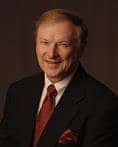
Dr. Frank Musiek is a renowned hearing researcher, scholar, teacher and clinical audiologist. His research on electrophysiology and central auditory processing has led to the discovery and implementation of numerous tools that are widely used for assessment of the auditory brainstem and central auditory pathways. His research career has contributed in a substantial way to our fundamental understanding of the anatomy, physiology and neurophysiology of the human auditory system. In addition to his immense contributions to clinical science and practice, Dr. Musiek has demonstrated an untiring dedication to educating students, from undergraduates to postdoctoral research associates and medical students. Dr. Musiek has published over 140 refereed articles and presented more than 220 invited lectures and seminars and nearly 300 papers at national and international conferences, research symposia and other venues around the world. He has developed four clinical audiologic tests, three of which are mainstays of the clinical central auditory test battery. He has published nine books and authored no fewer than 35 book chapters. His keen research and insight into the areas of central auditory processing and dysfunction, anatomy and physiology of the auditory system and hearing assessment and diagnosis have earned him a national and international reputation as an authority on the human auditory system and hearing.
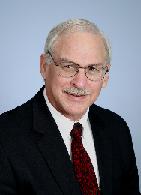
Dr. Robert Margolis is a scholar, scientist, clinician and teacher whose career achievements follow in the tradition of Dr. James Jerger. Dr. Margolis has 130 manuscripts and book chapters published, with 50 of those having graduate-student coauthors, attesting to his passion for teaching future generations of audiologists. Dr. Margolis’s career is characterized by “translational research,” in which he performed basic laboratory studies and applied them to clinical practice. Dr. Margolis led the profession to our current use of quantitative measures for tympanometry. He is one of the world’s leading authorities on the measurement of human middle ear function. His research has detailed measurement of acoustic admittance in infants, children and adults, providing us with admittance norms that clinicians use today. Dr. Margolis has numerous scholarly publications on the middle ear muscle reflex, energy reflectance of the middle ear, electrocochleography, diagnostic audiology, speech perception and various topics in the area of otitis media. Currently, Dr. Margolis is funded by the National Institutes of Health for development of automated audiometry. He has been the recipient of the JAAA Editor’s award, the Larry Mauldin Award for Excellence in Education, and the AAA Humanitarian Award and has received Honors of the Association from the Minnesota Academy of Audiology.

Dr. Harry Levitt’s career epitomizes the intent of the Jerger Career Award for Research in Audiology. He has a distinguished publication record with almost 150 articles in the most prestigious journals, more than 30 book chapters and 5 books. His research has advanced our knowledge and clinical applications in the areas of digital signal processing, computer simulations of speech, visual speech cues, and assisted adaptive testing. His work in adaptive methodology, presented in his 1971 paper Transformed up-down methods in psychoacoustics (JASA) laid the foundation for the adaptive test method still used today. His pioneering work in digital signal processing resulted in the development of the first digital hearing aid reported in his 1982 paper An array-processor computer hearing aid. While he receives the highest praise for his research, he receives equally high praise for his unusual spirit of intellectual generosity and kindness to his fellow scientists, colleagues, and students. Perhaps one of his greatest legacies to the profession will be his students, who hold him with such high regard for teaching them to think like scientists! Dr. Harry Levitt has dedicated his life to reducing or alleviating the impact of hearing loss on individuals through his research, his teaching, and his service.
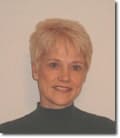
With over 60 publications, Robyn Cox’s work has made long-term significant contributions to the field’s clinical and scientific knowledge bases in the broad arena of amplification, and most notably in the area of outcome measures. Her research accomplishments and quality publication record are an outstanding distinguished achievement and further acknowledged by the Ear and Hearing Honorable Mention Award in 1982, the prestigious Ear and Hearing Editor’s Award in 1989, Superior Performance in University Research in 1987, 1988, 1992, 1993, and again in 1995, as well as the Shannon Award from the National Institutes of Health (NIH), National Institute on Deafness and Other Communication Disorders (NIDCD). She is truly one of an elite group of researchers in the area of hearing aids and patient care.